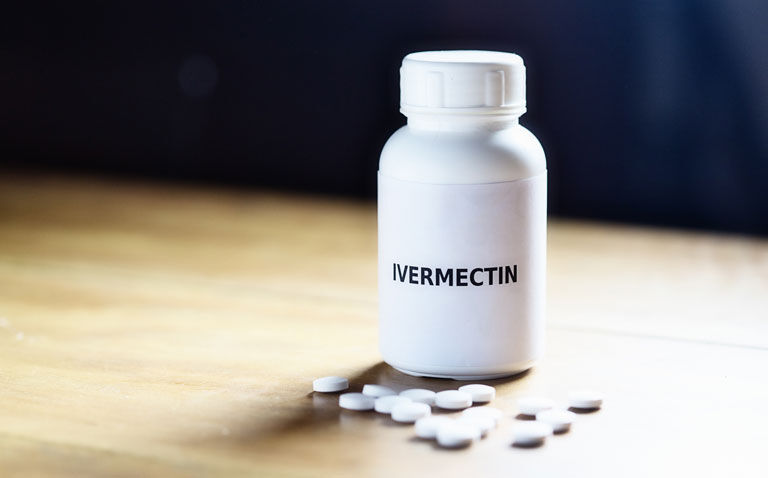Ivermectin use among symptomatic COVID-19 patients does not halt hospitalisation or ED visits for disease worsening compared to placebo
The results of a large RCT have shown that early ivermectin use in patients who are symptomatic with COVID-19 does not reduce either hospitalisation or emergency department (ED) visits due to a worsening of the disease compared to placebo.
The TOGETHER trial was designed to examine the potential value of several repurposed drugs for the management of COVID-19 including fluvoxamine, metformin and ivermectin and conducted by researchers from Brazil although the present study only describes the use of ivermectin.
In 2020 an in vitro study reported that the anti-parasitic, drug ivermectin, was able to inhibit COVID-19 leading to an approximate 5000-fold reduction in viral RNA after 48 hours. As a result, several clinical studies were initiated and a review of the emerging evidence in 2021 concluded that meta-analyses based on 18 randomised trials of ivermectin in COVID-19 have found large, statistically significant reductions in mortality, time to clinical recovery, and time to viral clearance.
Furthermore, the authors added how results from numerous controlled prophylaxis trials report significantly reduced risks of contracting COVID-19 with the regular use of ivermectin. However, a later meta-analysis virtually reversed the earlier conclusions, finding that ivermectin did not show a statistically significant effect on survival or hospitalisations and no significant effect of ivermectin on time to clinical recovery.
Interestingly, the authors later retracted their analysis and in February 2022, they described how in their original analysis, many of the included studies were at a high risk of bias and that others were later identified to be potentially fraudulent.
In their 2022 article, they concluded that ‘failure to recognise the potentially fraudulent studies, which led to multiple meta-analyses suggesting significant benefits of ivermectin for COVID-19, indicates that the tools currently used to evaluate the quality of clinical trials are insufficient.’
In order to provide more definitive evidence, the Brazilian team randomised adult patients with symptoms suggestive of COVID-19 (for no longer than seven days), on a 1:1 basis, to ivermectin use (400 microgram/kg body weight) once daily for three days or matching placebo. In addition, all participants had at least one risk factor for disease progression.
The primary outcome was a composite of hospitalisation due to COVID-19 within 28 days of randomisation or an emergency department visit because of worsening symptoms (defined as remaining under observation for > 6 hours) also within 28 days of randomisation.
Secondary outcomes included COVID-19 viral clearance at days 3 and 7, time to hospitalisation and time to clinical recovery.
Ivermectin use and COVID-19 outcomes
A total of 1358 patients with a median age of 49 years (58.2% women) were randomised to either ivermectin (679) or placebo. Risk factors for disease progression included cardiovascular disease, uncontrolled hypertension, COPD, asthma, type 1 diabetes and chronic kidney disease.
In total, 14.7% of those assigned to ivermectin use met the primary outcome compared to 16.3% in the placebo arm (relative risk, RR = 0.90, 95% CI 0.70 – 1.16). There were a total of 211 primary outcome events, of which 81% were hospital admissions. Moreover, there were no significant differences for any of the secondary outcomes.
Based on these findings, the authors concluded that ivermectin use had no significant impact on preventing disease progression or prolonged emergency department observations.
Citation
Reis G et al. Effect of Early Treatment with Ivermectin among Patients with Covid-19 N Engl J Med 2022










